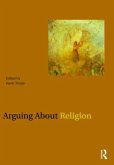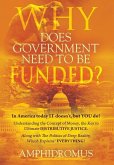This sixth volume of The History of Evil charts the era 1950-2018, with topics arising after the atrocities of World War II, while also exploring issues that have emerged over the last few decades. It exhibits the flourishing of analytic philosophy of religion since the War, as well as the diversity of approaches to the topic of God and evil in this era. Comprising twenty-one chapters from a team of international contributors, this volume is divided into three parts, God and Evil, Humanity and Evil and On the Objectivity of Human Judgments of Evil. The chapters in this volume cover relevant topics such as the evidential argument from evil, skeptical theism, free will, theodicy, continental philosophy, religious pluralism, the science of evil, feminist theorizations, terrorism, pacifism, realism and relativism.
This outstanding treatment of the history of evil will appeal to those with particular interests in the ideas of evil and good
This outstanding treatment of the history of evil will appeal to those with particular interests in the ideas of evil and good
Over the last seventy years philosophers and theologians have developed many intriguing new approaches to evil. The editors of this volume capture the important viewpoints informing the contemporary debate over evil by gathering together some of the most influential scholars in the field. This is an essential and definitive volume on the topic. Yujin Nagasawa, University of Birmingham, UK
Gellman, Meister, and Taliaferro collect a wide range of responses that focus on pertinent themes and contributions from 1950 to 2018. The scope is impressive indeed, and the result, highly informative. If God's exact relation to evil remains puzzling, as expected, the volume puts us in a much better position to ask questions and even to make some sense regarding our ongoing predicament with evil. It therefore earns its keep, with real benefits for all readers. Paul K. Moser, Loyola University Chicago¿, USA
Gellman, Meister, and Taliaferro collect a wide range of responses that focus on pertinent themes and contributions from 1950 to 2018. The scope is impressive indeed, and the result, highly informative. If God's exact relation to evil remains puzzling, as expected, the volume puts us in a much better position to ask questions and even to make some sense regarding our ongoing predicament with evil. It therefore earns its keep, with real benefits for all readers. Paul K. Moser, Loyola University Chicago¿, USA








